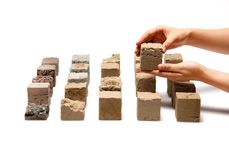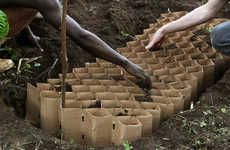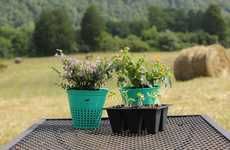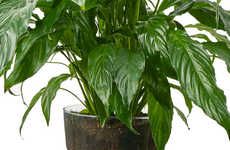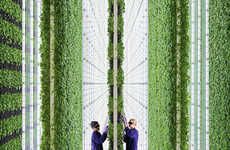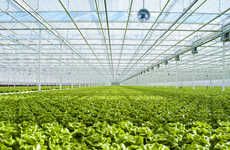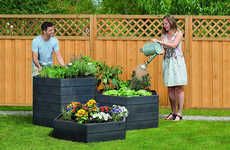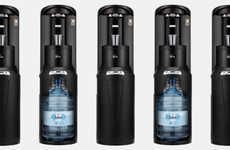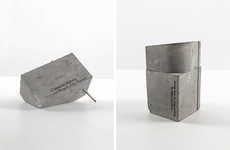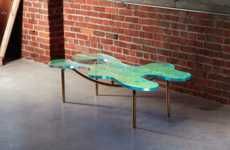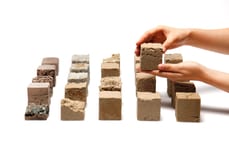
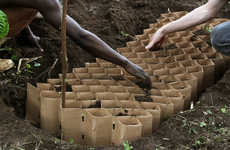
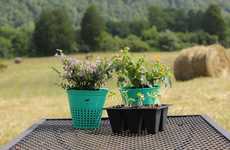

Brands create products to be used as aids for agriculture, gardening, and more
Trend - Designers create biodegradable aids to help consumers in activities that require sleight of hand. These eco-conscious innovations are implemented as structural support, most commonly for building and agricultural ventures. When they are no longer needed, these biodegradable aids dissolve and enrich the soil in the area.
Insight - When attempting a project, eco-minded consumers look for products that will offer them support in the endeavor. As anxieties about climate change are on the rise, individuals emphasize a need to find simple and sustainable solutions that can be seamlessly removed or disposed of, with little to no harm to the environment. This not only grants them the desired functionality and efficiency, but it also alleviates any experience of guilt.
Insight - When attempting a project, eco-minded consumers look for products that will offer them support in the endeavor. As anxieties about climate change are on the rise, individuals emphasize a need to find simple and sustainable solutions that can be seamlessly removed or disposed of, with little to no harm to the environment. This not only grants them the desired functionality and efficiency, but it also alleviates any experience of guilt.
Workshop Question - In what areas of your business can you employ biodegradable materials?
Trend Themes
1. Biodegradable Materials - There's a growing trend among designers to create biodegradable aids, products, and construction materials to help support eco-minded consumers in their projects.
2. Sustainable Horticulture and Agriculture - With biodegradable aids and materials, there's increasing awareness for sustainable horticulture and agriculture for organic, low-impact cultivation.
3. Ecosystem Restoration Systems - Systems that use biodegradable materials to revive ecosystems and build sustainable landscapes steadily gain traction among communities and governments.
Industry Implications
1. Agriculture and Horticulture - The agriculture and horticulture industry can shift focus to eco-friendly cultivation and sustainably-built systems using biodegradable materials.
2. Construction and Architecture - In the construction and architecture industry, there is a growing need for products with a lower carbon footprint and are less damaging to the environment.
3. Environmental and Ecological Conservation - The demand from individuals and increasing concerns about climate change create business opportunities for companies specializing in environmental and ecological conservation.
4 Featured, 36 Examples:
137,934 Total Clicks
Date Range:
Mar 18 — Dec 19
Trending:
Hot
Consumer Insight Topics:
